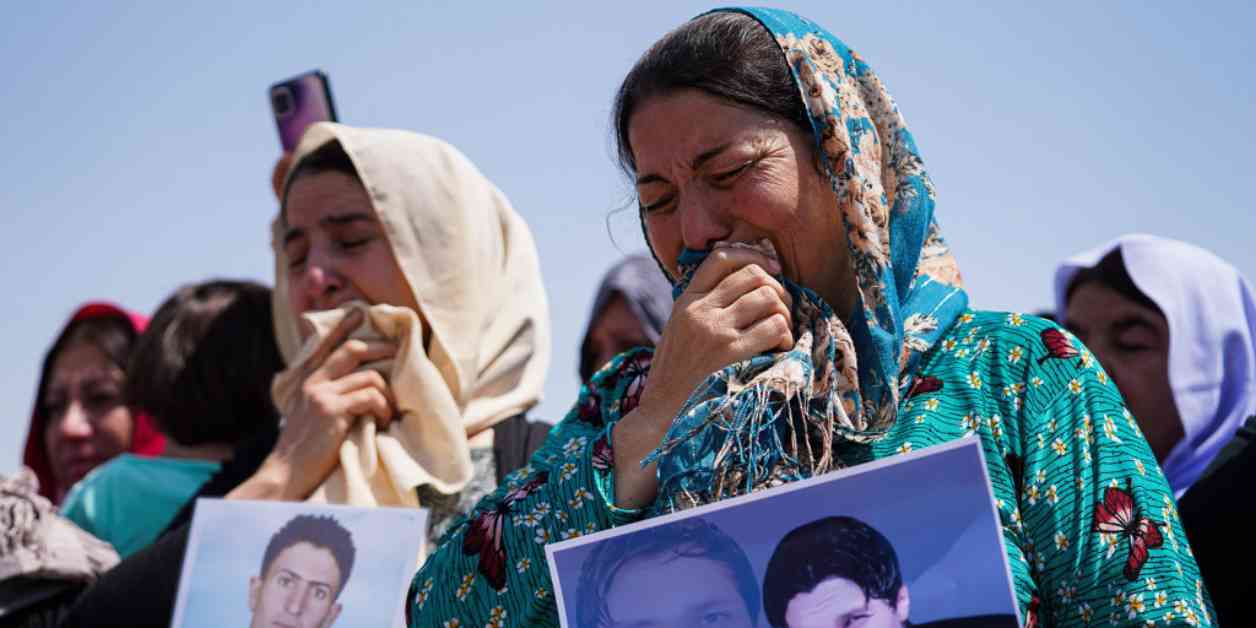Iraqi Yazidis Still Face Lingering Trauma and Fear a Decade After ISIS Genocide
As the world marks the 10th anniversary of the brutal ISIS genocide against the Yazidi religious community in Iraq, the scars of that horrific event are still fresh in the minds of survivors like Khairi Ali Ibrahim. The atrocities committed by ISIS militants in the Sinjar district a decade ago continue to haunt Ibrahim and his fellow Yazidis, who remain one of the most persecuted and vulnerable minority groups in the world.
The nightmare of August 2014, when ISIS militants slaughtered hundreds of men, forced thousands of women and children into sexual slavery, and displaced tens of thousands from their homes, has been reawakened in recent weeks in parts of Iraq. The Yazidi community is once again living in fear as hard-line mullahs in Iraqi Kurdistan have been inciting violence against them through public speeches and social media.
“I never thought of leaving Iraq, but after the recent events and the hate speech, violence, and incitement against us, I reached the conviction that we are in danger and live in an unsafe environment and our lives are at risk at any moment,” said Tahseen Shaikh Kalo, a 30-year-old Yazidi.
Yazidis, who practice an ancient monotheistic religion centered around a deity known as the “Peacock Angel,” have long been the target of persecution and discrimination in Iraq. The ISIS onslaught of 2014, which saw as many as 5,500 Yazidis killed and thousands more abducted and enslaved, was declared a genocide by the United Nations for its unimaginable atrocities.
After ISIS was defeated in 2019, the Yazidi community hoped for a sense of security and peace. However, recent tensions have once again put their lives at risk. The latest wave of threats stems from controversial remarks made by Qasim Shasho, a Kurdish politician and leader of an armed Yazidi resistance group, who made comments deemed blasphemous by some Muslim leaders in Iraq.
The Sunni Endowment, the Iraqi government agency responsible for managing Sunni Arab mosques, condemned Shasho’s statements and issued an arrest warrant for him under the country’s penal code. This led to direct threats against Yazidis living in camps in Duhok, prompting many families to flee their homes in fear of violence.
In response to the escalating tensions, Yaza, a U.S.-based organization advocating for the Yazidis, expressed grave concern over the violent hate speech directed at the community. They called on the Iraqi government and the Kurdistan Regional Government to address the root causes of the genocide and protect vulnerable minorities in the region.
Osama Gharizi, a senior adviser at the United States Institute of Peace, emphasized the need to counter divisive rhetoric and protect vulnerable communities in Iraq. He warned that the rise in hate speech could undermine efforts to heal the social fabric torn apart by ISIS’s atrocities.
The threats and intimidation faced by Yazidis have left many feeling psychologically traumatized and fearful for their safety. Yazidi women and girls, who were subjected to unspeakable horrors during ISIS’s reign of terror, remain particularly vulnerable to violence and exploitation.
Nahida Darwish, chairwoman of the Sinjar Women’s Platform for Women Empowerment, highlighted the psychological disorders suffered by many Yazidi women as a result of their traumatic experiences. The case of Nadia Murad, a Yazidi woman who escaped captivity after being raped by ISIS militants, brought international attention to the plight of the Yazidi community.
As the Yazidis grapple with the resurgence of violence and hostility, many are considering leaving Iraq in search of safety and security. Tahseen Shaikh Kalo’s desire to seek refuge in America or France reflects the deep sense of insecurity felt by many Yazidis in their homeland.
The renewed wave of threats and intimidation facing the Yazidi community serves as a stark reminder of the ongoing challenges they face in rebuilding their lives and ensuring their safety. Despite the passage of a decade since the ISIS genocide, the trauma and fear linger among Yazidis, who continue to seek justice, protection, and peace in a region plagued by violence and instability.
Challenges Faced by the Yazidi Community
The Yazidi community in Iraq has long faced discrimination and persecution due to their religious beliefs and cultural practices. The ISIS genocide of 2014 was a devastating blow to the Yazidis, leading to mass killings, abductions, and displacement on a large scale. The trauma of that horrific event continues to affect Yazidis to this day, as they struggle to rebuild their lives and recover from the atrocities they endured.
Impact of Recent Tensions on Yazidi Women
Yazidi women and girls, who were among the primary targets of ISIS militants during the 2014 genocide, remain particularly vulnerable to violence and exploitation. Many of them continue to suffer from psychological disorders such as anxiety and depression as a result of their traumatic experiences. The recent resurgence of threats and intimidation against the Yazidi community has further exacerbated the plight of Yazidi women, who fear for their safety and well-being.
International Response and Calls for Action
The international community has a crucial role to play in supporting the Yazidi community and addressing the root causes of their persecution. Organizations like Yaza and Nadia’s Initiative have been advocating for the protection of Yazidis and calling on governments to take concrete measures to ensure their safety and security. The recent wave of hate speech and threats against Yazidis underscores the urgent need for action to prevent further violence and protect vulnerable communities in Iraq and the Kurdistan Region.
In conclusion, the Yazidi community in Iraq continues to face ongoing challenges and threats to their safety and well-being a decade after the ISIS genocide. The recent resurgence of violence and intimidation against Yazidis highlights the urgent need for action to address the root causes of their persecution and ensure their protection. As the world marks the anniversary of the horrific events of 2014, it is imperative that all stakeholders work together to support the Yazidi community and prevent further atrocities from occurring in the future.



























